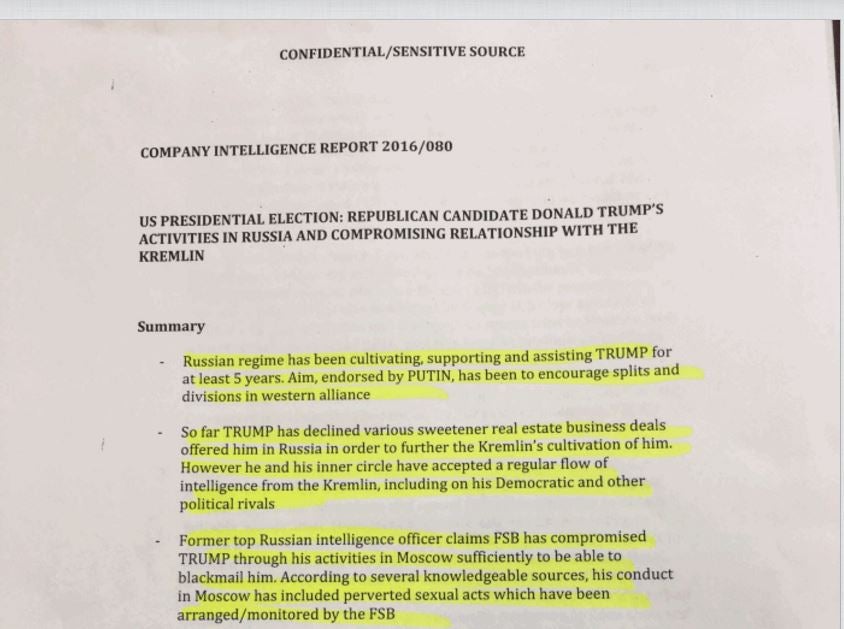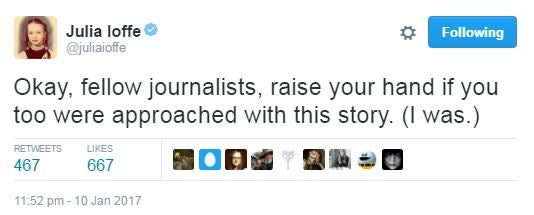
The Guardian has said it had “serious concerns” about the authenticity of explosive claims made in a dossier about President-Elect Donald Trump as explaining why it passed on the story.
A spokesperson for the title told Press Gazette: “Working with a US partner, we were in possession of a version of the dossier.
“We didn’t publish as we had serious concerns about authenticity because we couldn’t validate the claims or the sourcing.”
A full, unredacted version of the report was shared by Buzzfeed on Monday following its initial leak to CNN, prompting Trump to denounce the lurid claims as “fake news”.
The Guardian’s world affairs editor, Julian Borger, who has written an extensive piece on the file’s origins, said: “The author of the reports had been insistent on blotting out references to his Russian sources in the copies he gave to the press, including the Guardian, out of fear for their safety.”
The BBC, the Financial Times (FT) and The Times have also said they were aware of the story ahead of it being made public.
The BBC’s world affairs correspondent Paul Wood told of how he had been shown the report during the final week of the US election campaign by the Washington political research company said to have commissioned it.
He said: “The BBC decided not to use it then, for the very good reason that without seeing the tape – if it exists – we could not know if the claims were true. The detail of the allegations were certainly lurid.”
The FT said: “Like some other news media, the Financial Times was given access to the dossier and spent time last year attempting to verify some of its claims, but has so far been unable to do so.
“The dossier makes extensive use of what it calls unnamed intelligence sources within the Russian government to report what it says are secret Kremlin activities.”
The Times said it was approached by a “mysterious freelancer” in the weeks before the US Presidential Election who was promising the “biggest US story since Watergate”.
It added the man had “cheerfully explained that he had no proof of any of it” and that the paper’s reporters had “found the information contained in the dossier unverifiable”.
In the US, Trump has praised media outlets who did not run the story.
After the dossier was published, the Huffington Post’s Julia Ioffe, a former Moscow correspondent for the New Yorker, said on Twitter: “Okay, fellow journalists, raise your hand if you too were approached with this story. (I was.)”
Asked why she turned down the story, Ioffe replied: “Because it was impossible to verify. (I tried.).”

Picture: Reuters/Lucas Jackson
Email pged@pressgazette.co.uk to point out mistakes, provide story tips or send in a letter for publication on our "Letters Page" blog
